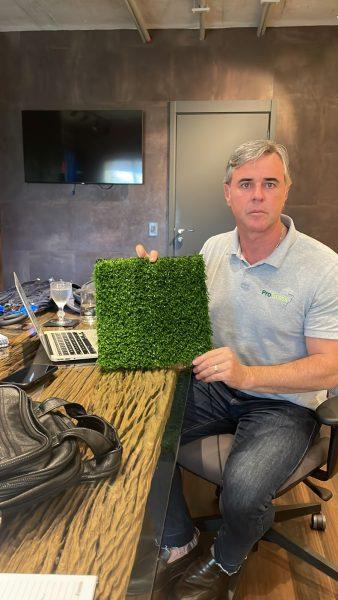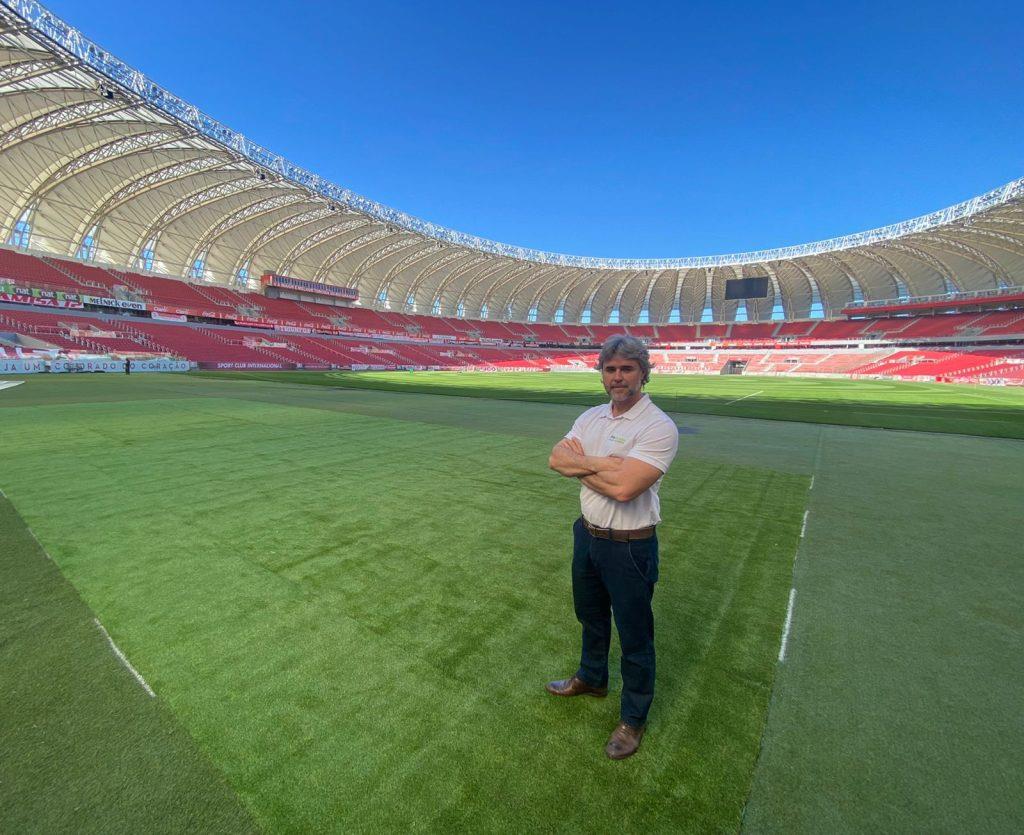
Football Turfs In Brazil Made Out Of Raw Material From UAE
The Brazilian company is expected to have applied the 9,800 square meters of synthetic turf across the Sports Center by March next year.

Pegoraro: Company delivers synthetic turf
“ProGrass was established in 2013 following the invitation of Sportlink president Adriano Gelli to be the exclusive representative of the sports synthetic turf in São Paulo. Some years later, we started representing the Sportlink brand across the Brazilian territory. Now we've been in the market for ten years,” explains Aleks Pegoraro, sales director of ProGrass for the South and Southeast regions of the country. Pictured on the opening photo, Pegoraro on the turf of the International.
The synthetic turf creation and application process engages three companies. The raw material – the turf yars from the UAE – goes through a manufacturing process in the Arab-based industrial plant of Mattex. Sportlink imports these yarns and manufactures the finished turf that's then applied at stadiums by ProGrass.
In addition to the yarns, net and latex are also used as raw materials by Sportlink. These items provide the turf with more resistance, longevity, softness, comfort, and good appearance.
“Before buying the yarns from the UAE in 2016, Mattex used to buy them from Europe. Comparing the raw materials from the two regions, we believe that they have the same quality standards. Besides us here in Brazil, Mattex caters to companies from Europe, the United States, and Canada ,” says the sales director of ProGrass.
Before applying the turn, ProGrass carries out a soil study, prepares the underlayment and implements drainage systems. When the synthetic turn is ready, ProGrass takes care of the revitalization and rotation of turf carpets, builds wire fences, sports nets, a venue lightning.
“Compared to normal grass, the synthetic turf stands out for a number of reasons, including the price of maintenance. As the natural turf requires a lot of sun and water and has to be mowed daily, it demands a high maintenance cost. The synthetic turf, on the other hand, requires a maintenance every three months. Some customers don't feel the need for a maintenance for a period as larger as six months,” says Pegoraro.
The synthetic turf also provides a level of comfort that's similar to the one the athlete feels when playing on natural turf. When we talk durability, the synthetic product tends to last 100 times longer than natural turf.
Report by Rebeccca Vettore, especially for ANBA
Translated by Guilherme Miranda
SuppliedThe post Football turfs in Brazil made out of raw material from UAE appeared first on Agência de Notícias Brasil-Árabe .
.jpg)
Legal Disclaimer:
MENAFN provides the
information “as is” without warranty of any kind. We do not accept
any responsibility or liability for the accuracy, content, images,
videos, licenses, completeness, legality, or reliability of the information
contained in this article. If you have any complaints or copyright
issues related to this article, kindly contact the provider above.


















Comments
No comment